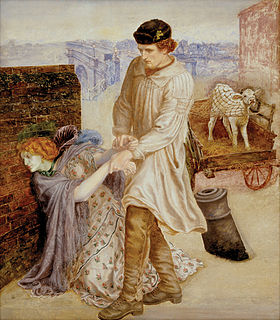
Serafín Álvarez Quintero and Joaquín Álvarez Quintero were Spanish dramatists.
Ioamnet Quintero Alvarez is a former high jumper from Cuba.

Joaquín Peiró Lucas is a Spanish retired football attacking midfielder and manager.

Vengeance is a 1958 Spanish drama film directed by Juan Antonio Bardem. It was co-produced with Italy, starring Italian Raf Vallone. Francisco Rabal narrates the film. It was shown at the 1958 Cannes Film Festival but not released in Spain until the following year. The film had serious troubles with Spanish censorship. Bardem even went to prison and it was an international scandal. It was nominated for the Academy Award for Best Foreign Language Film.

Quintero is a Spanish surname originating in the Spanish region of Galicia. The name comes from quinto or quinta which means "fifth". It is possible that a "quintero" was a renter of quintas. The quintero would rent one-fifth of the land and pay as rent one-fifith of his produce of the land to the landlord.

Joan Peiró i Belis was a Catalan anarchist activist, writer, editor of the anarchist newspaper Solidaridad Obrera, two-time Secretary General of the Confederación Nacional del Trabajo and Minister of Industry of the Spanish government during the Spanish Civil War.
The Alvarez incest case was uncovered late March 2009 when 59-year-old Arcedio Alvarez was arrested in Mariquita, Colombia, accused of imprisoning and sexually abusing his daughter Alba Nidia Alvarez over a period of 25 years, beginning from when she was 9 years old. The daughter also gave birth to 14 children, 6 of whom died for lack of medical care.

Alberto Romea was a Spanish actor. Romea appeared in more than fifty films during his career including Lola, the Coalgirl (1952).
Malvaloca is a 1926 Spanish silent drama film directed by Benito Perojo and starring Lidia Gutiérrez, Manuel San Germán and Javier de Rivera. It is an adaptation of the 1912 play of the same title.
The Balcony of the Moon is a 1962 Spanish musical comedy film directed by Luis Saslavsky and starring Carmen Sevilla, Lola Flores and Paquita Rico. Its critical and commercial failure illustrated the declining popularity of the Andalusian musical. one of the most popular Spanish genres of the 1950s.
The Cheerful Soul is a 1919 Italian silent comedy film directed by Roberto Roberti and starring Francesca Bertini. It is based on play by Serafín Álvarez Quintero.
The Pure Truth is a 1931 American comedy film directed by Florián Rey and Manuel Romero and starring José Isbert, Enriqueta Serrano and Manuel Russell.
The Man Who Laughed at Love is a 1933 Spanish comedy film directed by Benito Perojo. It was made at the Orphea Studios in Barcelona.
Carnival Figures is a 1926 Spanish silent film directed by Florián Rey.
The Mysteries of Tangier or Steel Eagles is a 1927 Spanish silent adventure film directed by Florián Rey.
A Gentleman in Tails is a 1931 American comedy film directed by Roger Capellani and Carlos San Martín and starring Roberto Rey, Gloria Guzmán and Rosita Díaz Gimeno. It is the Spanish-language version of Evening Clothes. It was made by Paramount Pictures at the Joinville Studios in Paris. A French-language version The Man in Evening Clothes was also released the same year.
The Barber of Seville is a 1938 German-Spanish musical film directed by Benito Perojo and starring Miguel Ligero, Estrellita Castro and Roberto Rey.
Adventures of Juan Lucas is a 1949 Spanish historical adventure film directed by Rafael Gil and starring Fernando Rey, Marie Déa and Manolo Morán.

Carmen Carbonell (1900–1988) was a Spanish stage and film actress. She received the National Theatre Award twice, in 1950 and 1980.
The Football Lottery is a 1960 Spanish comedy film directed by Ana Mariscal.









